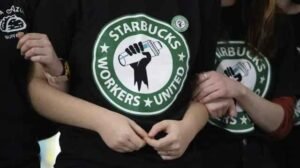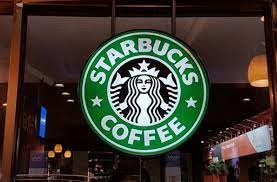The Supreme Court agreed Friday to hear Starbucks‘ appeal of a judgement directing the coffee company to reinstate seven sacked employees who were part of a high-profile union push and became known as the “Memphis Seven.”
With far-reaching ramifications for labour organising, the judges will hear the case to determine the appropriate criteria for court injunctions requested by the National Labour Relations Board (NLRB) in administrative procedures against employers.

The injunctions, which aim to maintain the status quo, have ordered firms to restore employees, keep facilities operating, and halt corporate policy changes while the NLRB investigates suspected unfair labour practices.
However, federal appeals courts have disagreed on which standard the NLRB must pass to acquire such an order.
Starbucks, supported by the U.S. Chamber of Commerce and other business groups, claims that certain courts, including the one that ordered the reinstatement of the Memphis Seven, have been too lenient, emboldening the NLRB to intervene with companies without fair reason.
What happened?
“That split carries enormous consequences for employers nationwide and unacceptably threatens the uniformity of federal labour law,” Starbucks’ lawyers wrote to the court.
In Memphis, seven Starbucks employees were fired after openly posting a letter to the company’s CEO and meeting with a television news team at the store in January 2022 to discuss their unionisation efforts.

The coffee retail behemoth stated that it properly terminated the workers on the day of the television interview for violating company regulations, such as walking behind the counter while off-duty and opening a closed door to allow an unauthorised individual to enter the store.
The 6th Circuit, like with four other federal appellate courts, allows the NLRB’s injunction requests if they meet a two-factor “reasonable cause” standard demonstrating that the employer participated in unfair labour practices.
Four other federal appeals courts utilise a four-factor criteria for preliminary injunctions, which Starbucks claims is a higher bar.
What does Starbucks says?
“We are pleased the Supreme Court has decided to consider our request to level the playing field for all U.S. employers by ensuring that a single standard is applied as federal district courts determine whether to grant 10(j) injunctions pursued by the National Labour Relations Board,” Andrew Trull, a spokesperson for the organisation, said in a statement.

Starbucks Workers United, the union that organises employees at the coffee company, described the injunctions as “one of the most effective tools” for holding businesses accountable.
“The world’s biggest coffee company is now using a technicality to align itself with and do the bidding of the billionaire class,” according to the union. “Starbucks is on a campaign to undermine the National Labour Relations Board’s capacity to hold billion-dollar firms responsible for violating the law.”
Where does Supreme court case goes?
However, the Justice Department (DOJ) asked the court not to hear the case, rejecting the argument that the two criteria differ.
“The court’s decision does not conflict with any previous decision of this Court,” the DOJ stated in court documents. “And although different courts of appeals use different verbal formulations to describe the standard for granting Section 10(j) relief, those terminological distinctions do not warrant this Court’s review.”
The case is anticipated to be among the last to be heard this term, with a ruling expected by the end of June.










